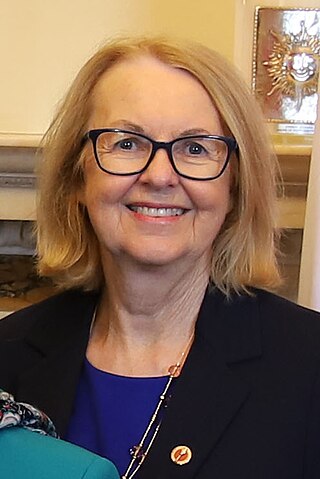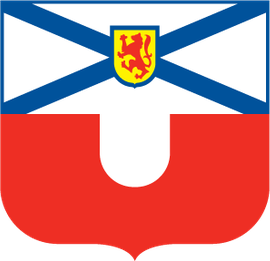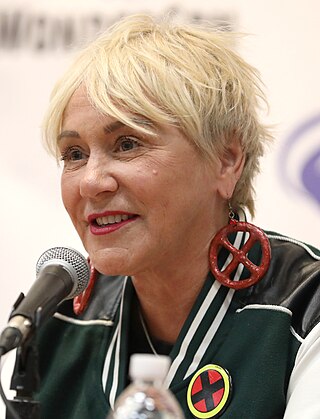Related Research Articles

Cape Breton University (CBU) is a public university located in Sydney, Nova Scotia, Canada. It is the only post-secondary degree-granting institution within the Cape Breton Regional Municipality and on Cape Breton Island. The university is enabled by the Cape Breton University Act passed by the Nova Scotia House of Assembly. Prior to this, CBU was enabled by the University College of Cape Breton Act (amended). The University College of Cape Breton's Coat of Arms were registered with the Canadian Heraldic Authority on May 27, 1995.

Education in Canada is for the most part provided publicly, funded and overseen by federal, provincial, and local governments. Education is within provincial jurisdiction and the curriculum is overseen by the province. Education in Canada is generally divided into primary education, followed by secondary education and post-secondary. Education in both English and French is available in most places across Canada. Canada has a large number of universities, almost all of which are publicly funded. Established in 1663, Université Laval is the oldest post-secondary institution in Canada. The largest university is the University of Toronto with over 85,000 students. Four universities are regularly ranked among the top 100 world-wide, namely University of Toronto, University of British Columbia, McGill University, and McMaster University, with a total of 18 universities ranked in the top 500 worldwide.

The Nova Scotia Liberal Party is a centrist provincial political party in Nova Scotia, Canada and the provincial section of the Liberal Party of Canada. The party currently holds two seats in the Legislature, under the interim leadership of Derek Mombourquette. The party was in power most recently from the 2013 election until the 2021 election.

Darrell Elvin Dexter is a Canadian lawyer, journalist and former naval officer who served as the 27th premier of Nova Scotia from 2009 to 2013. A member of the Nova Scotia New Democratic Party, he served as party leader from 2001 to 2013. He became Premier in 2009 after his party defeated the governing Progressive Conservative Party, leading the first NDP government in Atlantic Canada and the second east of Manitoba. His government was defeated in the 2013 election, becoming the first Nova Scotia government in 131 years to be denied a second mandate; Dexter himself was defeated in his constituency by 21 votes. Dexter now serves as a lobbyist for the cannabis industry.

Jane Marie Cordy is a former Canadian Senator who represented Nova Scotia from 2000 to 2024.

The Chignecto-Central Regional Centre for Education is a Canadian public school district in Nova Scotia.
Saint Mary's University (SMU) is a public university located in Halifax, Nova Scotia, Canada. The school is best known for having nationally leading programs in business and chemistry. The campus is situated in Halifax's South End and covers approximately 32 hectares.
The Halifax Regional Centre for Education is the public school district responsible for 136 elementary, junior high, and high schools located in the Halifax Regional Municipality. The current Regional Executive Director is Steve Gallagher. The district's office is on Spectacle Lake Drive in Dartmouth. The district's stated vision is "to provide a high quality education to every student every day". On January 24, 2018, the provincial government announced that the Halifax Regional School Board would be dissolved and that kindergarten to grade 12 education services in Halifax would administered by an appointed provincial council. The Halifax Regional School Board was dissolved on March 31, 2018.
The Cape Breton-Victoria Regional Centre for Education is the public school district that provides educational services for approximately 13,000 students as of 2015-16 in more than 56 elementary, junior high, and high schools, as well as 185 adult learners in four adult education centres. These schools are located in the counties of Cape Breton, and Victoria in Cape Breton, Nova Scotia, Canada.

The South Shore Regional Centre for Education (SSRCE) is the public school board responsible for the administration of elementary, junior high, and high school education in Lunenburg County and Queens County in Nova Scotia, Canada. The South Shore Regional Centre for Education was established on April 1, 2018 by the Nova Scotia Education Reform Act. It replaced the South Shore Regional School Board which was created August 1, 2004 by an Act of the provincial legislature.

The Nova Scotia Teachers Union was organized in 1895–96 to unify and elevate the teaching profession in the Canadian province of Nova Scotia. As the unified voice for the advocacy and support of all its members, the NSTU promotes and advances the teaching profession and quality public education. Members include some 9,100 public school teachers including specialist teachers, speech language pathologists and school psychologists. It also represents teachers who work for the Atlantic Provinces Special Education Authority in Nova Scotia, Prince Edward Island and New Brunswick.

Lenore Zann is a Canadian actress and politician who has served as the Member of Parliament (MP) for the riding of Cumberland—Colchester in the House of Commons of Canada as a member of the Liberal Party. Before entering federal politics, she represented the electoral district of Truro-Bible Hill in the Nova Scotia House of Assembly from 2009 until 2019 as a member of the Nova Scotia New Democratic Party and from June 9, 2019, until September 12, 2019, as an independent.

Stephen McNeil is a Canadian politician who served as the 28th premier of Nova Scotia, from 2013 to 2021. He also represented the riding of Annapolis in the Nova Scotia House of Assembly from 2003 to 2021 and was the leader of the Nova Scotia Liberal Party from 2007 to 2021.
Karen Lynn Casey is a Canadian politician, who represented the electoral district of Colchester North in the Nova Scotia House of Assembly, first as a Progressive Conservative, and then as member of the Liberal caucus from 2011 to 2021.

The 2009 Nova Scotia general election was held on June 9, 2009 to elect members of the 61st House of Assembly of the Province of Nova Scotia, Canada. The government was defeated on a money bill on May 4, and the Nova Scotia House of Assembly was dissolved by Lieutenant Governor Mayann Francis on May 5. thereby triggering an election. The NDP won a majority government, forming government the first time in the province's history, and for the first time in an Atlantic Canadian province. The governing Progressive Conservatives were reduced to third place.

David Scott Armstrong is a Canadian politician, who was elected as a Conservative member to represent the electoral district of Cumberland—Colchester—Musquodoboit Valley in the federal by-elections on November 9, 2009. He served until his defeat in the 2015 election.

Zachariah John Churchill is a Canadian politician and activist from Nova Scotia who served as the leader of the Nova Scotia Liberal Party and the leader of the Opposition from 2022 until 2024. He previously served as the member of the Nova Scotia House of Assembly for Yarmouth, first elected from 2010 until 2024, and as a cabinet minister in various portfolios in the Stephen McNeil and Iain Rankin ministries, most notably as minister of health and wellness.

Timothy Jerome Houston is a Canadian politician who is the 30th and current premier of Nova Scotia since 2021. He was first elected to the Nova Scotia House of Assembly in the 2013 provincial election. A member of the Progressive Conservative Association of Nova Scotia, he represents the electoral district of Pictou East. Houston also served as the leader of the opposition from 2018 to 2021. He and the Progressive Conservative party won a majority government in the 2021 Nova Scotia general election, becoming the first Progressive Conservative premier since 2009. He called a snap election in 2024, increasing his party's majority mandate.

Iain Thomas Rankin is a Canadian politician who served as the 29th premier of Nova Scotia from February 23, 2021, to August 31, 2021. He serves in the Nova Scotia House of Assembly for the Nova Scotia Liberal Party, representing the electoral district of Timberlea-Prospect. Rankin was first elected in the 2013 Nova Scotia general election and was re-elected in the 2017, the 2021 and the 2024 general elections. On February 6, 2021, Rankin was announced the Leader of the Nova Scotia Liberal Party after a competitive leadership race.
Paul Wozney is a Canadian politician who was elected to the Nova Scotia House of Assembly in the 2024 general election, representing Sackville-Cobequid as a member of the New Democratic Party.
References
- ↑ LEBLANNM (2018-03-01). "Bill 72 - Education Reform (2018) Act". Nova Scotia Legislature. Retrieved 2023-12-08.
- ↑ CBC News (2018-01-24). "Nova Scotia to dissolve elected school boards in favour of advisory council".
- 1 2 "N.S. education reform eliminating school boards passes final reading". Atlantic. 2018-03-08. Retrieved 2023-12-09.
- 1 2 CBC News (2017-02-09). "Teachers reject latest contract offer, no end in sight to work-to-rule".
- ↑ CBC News (2016-12-03). "Nova Scotia to close public schools as teachers take job action".
- ↑ CBC News (2016-11-29). "No concerts, no meetings: what work-to-rule means for students and teachers".
- ↑ "Nova Scotia passes bill ending teachers contract dispute". Macleans.ca. The Canadian Press. 2017-02-21. Retrieved 2023-12-09.
- ↑ Thomson, Aly (2017-02-15). "N.S. teachers to hold one-day strike to protest imposed contract". CTVNews. Retrieved 2023-12-09.
- 1 2 "Opposition MLAs speak out against bill to impose contract on teachers". CBC News. 2017-02-21.
- ↑ "'Terribly wrong': N.S. court overturns 2017 law that imposed labour contract on teachers". Atlantic. 2022-06-14. Retrieved 2023-12-09.
- ↑ "Majority of Nova Scotians believe Bill 75 harmed public education". nstu.ca. Retrieved 2023-12-09.
- ↑ "Fast Facts: Nova Scotia Education Overhaul a Cautionary Tale for Manitoba". Canadian Centre for Policy Alternatives. Retrieved 2023-12-09.
- 1 2 Scotia, Communications Nova (2018-05-11). "Glaze Report Provides Recommendations to Improve Nova Scotia's Education Administrative System". News Releases. Retrieved 2023-12-09.
- ↑ Scotia, Communications Nova (2018-05-11). "Response to Glaze Report". News Releases. Retrieved 2023-12-09.
- ↑ "Recommendations for education accountability nowhere to be found a year after the Glaze Report - Halifax | Globalnews.ca". Global News. Retrieved 2023-12-09.
- ↑ "Canadian students' math scores continue steep slide, raising concerns about how subject is taught". The Globe and Mail. 2023-12-05. Retrieved 2023-12-09.
- ↑ CBC Newse (2023-12-05). "Canadian students' math, reading scores have dropped since 2018 — but study says it's not all COVID's fault".